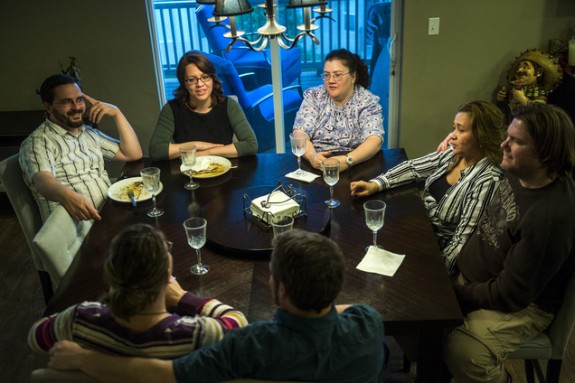To any guilt-prone women, the annual idealization of motherhood that sweeps across the country at this time of year can be agonizing.
The image in the mirror seems less qualified, less nurturing, less altruistic, less crafty, less organized, less patient, less self-assured or wise or adventurous than the one these moms see portrayed in greeting cards, TV ads, and on YouTube.
But Mother’s Day may be most painful to Bible-believing women — whether Mormon, Catholic, Protestant or Jewish — who cannot have children.
After all, God’s first commandment to the first couple in that holy book was to “multiply and replenish the Earth.”
Motherhood, the LDS Church declared this week on its website, is “the highest, holiest service assumed by humankind. It’s the definition of selfless service. It’s both a daunting responsibility and a glorious opportunity. The divine role of motherhood is a gift from God, and key to his plan of happiness for all his children.”
Biblical tales of “barren” women abound, but they all end up with babies (sometimes becoming mothers in their old age, but still…). And church magazines about infertility typically end with “miracle babies.”
Nearly 11 percent of women in the United States ages 15 to 44 — 6.7 million — have “impaired fecundity” (impaired ability to get pregnant or carry a baby to term), according to the Centers for Disease Control and Prevention.
Some of them may eventually become mothers by marriage, medicine or adoption, but until then, many feel ashamed, frustrated and excluded. For others, childlessness becomes lifelong.
Is infertility, then, a failure of faith? A religious test? A shirking of sacred responsibilities? Or are churches wrong to hold up motherhood as the apex of a woman’s life?
Regardless of doctrinal particulars or practice, many religious women facing childlessness go through a set of stages similar to any sort of grief — including denial, blame, anger, bargaining, depression and, finally, acceptance.
While churches can make it tough by discouraging medical procedures such as artificial insemination, in vitro fertilization or surrogacy, they also can offer solace for sorrow.
Infertile Catholics and Mormons, in particular, draw differing lessons from their faiths’ pronouncements on the importance of motherhood.












